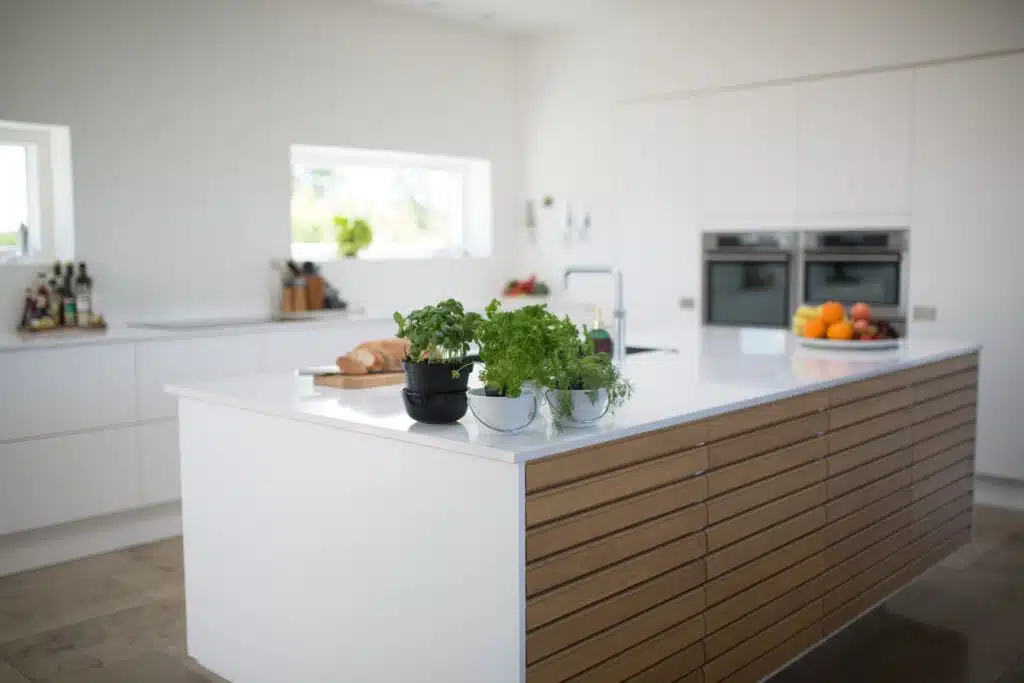Sustainable Solutions: Eco-Friendly Practices in Cabinet Manufacturing
by siteadmin

In an era where environmental consciousness is paramount, sustainability has become a key consideration in various industries, including interior design and manufacturing. Cabinet manufacturing, in particular, has witnessed a shift towards eco-friendly practices aimed at reducing environmental impact and promoting a more sustainable future. In this blog post, we’ll explore the importance of sustainability in cabinet manufacturing and the innovative eco-friendly practices adopted by leading manufacturers.
The Importance of Sustainability:
The manufacturing process of cabinets traditionally involves the use of materials and resources that can have significant environmental repercussions. From the extraction of raw materials to the production of finished products and waste disposal, each step of the process can contribute to carbon emissions, deforestation, and pollution. Recognizing these challenges, cabinet manufacturers are increasingly embracing sustainable practices to minimize their ecological footprint and preserve natural resources for future generations.
Utilization of Sustainable Materials:
One of the most effective ways cabinet manufacturers are promoting sustainability is by sourcing and utilizing eco-friendly materials. Instead of relying solely on traditional hardwoods sourced from forests, manufacturers are turning to sustainable alternatives such as bamboo, reclaimed wood, and FSC-certified (Forest Stewardship Council) lumber. These materials are harvested responsibly, minimizing deforestation and promoting biodiversity while reducing the demand for virgin timber.
Recycling and Upcycling:
Another eco-friendly practice adopted by cabinet manufacturers is recycling and upcycling materials to minimize waste and maximize resource efficiency. Scrap wood and sawdust generated during the manufacturing process can be recycled into composite materials or used as biofuel, reducing the amount of waste sent to landfills. Additionally, manufacturers may repurpose salvaged or reclaimed wood from old furniture, buildings, or pallets to create unique and sustainable cabinet designs.
Energy-Efficient Production Processes:
Cabinet manufacturing typically requires significant energy consumption, particularly during the milling, cutting, and finishing stages. To reduce energy consumption and greenhouse gas emissions, manufacturers are investing in energy-efficient equipment and production processes. Utilizing energy-efficient lighting, optimizing heating and cooling systems, and implementing lean manufacturing principles help minimize energy usage and increase operational efficiency.
Water Conservation Measures:
Water is a precious resource, and cabinet manufacturing processes can consume large quantities of water for cleaning, finishing, and cooling purposes. To mitigate the environmental impact, manufacturers are implementing water conservation measures such as recycling and reusing water, installing water-efficient equipment, and implementing closed-loop water systems. These initiatives not only reduce water consumption but also minimize wastewater discharge and contamination.
Certifications and Standards:
In addition to adopting sustainable practices, many cabinet manufacturers seek certifications and adhere to industry standards to demonstrate their commitment to sustainability. Certifications such as the Environmental Product Declaration (EPD), Cradle to Cradle (C2C), and LEED (Leadership in Energy and Environmental Design) ensure that products meet strict environmental criteria and promote transparency in sustainability efforts. By choosing cabinets certified by reputable organizations, consumers can make informed decisions and support environmentally responsible brands.
Sustainability is no longer just a buzzword; it’s a guiding principle driving innovation and progress in cabinet manufacturing. By embracing eco-friendly practices, utilizing sustainable materials, and investing in energy-efficient technologies, cabinet manufacturers are reshaping the industry and paving the way towards a greener future. As consumers become increasingly aware of the environmental impact of their purchasing decisions, sustainable cabinets offer a compelling solution that combines style, functionality, and environmental responsibility. By choosing eco-friendly cabinets, homeowners can not only enhance the beauty of their spaces but also contribute to the preservation of our planet for generations to come.
In an era where environmental consciousness is paramount, sustainability has become a key consideration in various industries, including interior design and manufacturing. Cabinet manufacturing, in particular, has witnessed a shift towards eco-friendly practices aimed at reducing environmental impact and promoting a more sustainable future. In this blog post, we’ll explore the importance of sustainability in…
Recent Posts
- Carpentry as Art: Exploring the Creative Expression of Carpenters
- Mastering the Craft: The Mastery of Materials and Tools by Carpenters
- Tracing the Craft: The Historical Evolution of Carpentry Techniques by Carpenters
- Elevating Interiors: Enhancing Spaces with Crown Molding
- Mastering Crown Molding: Practical Considerations and Installation Tips
